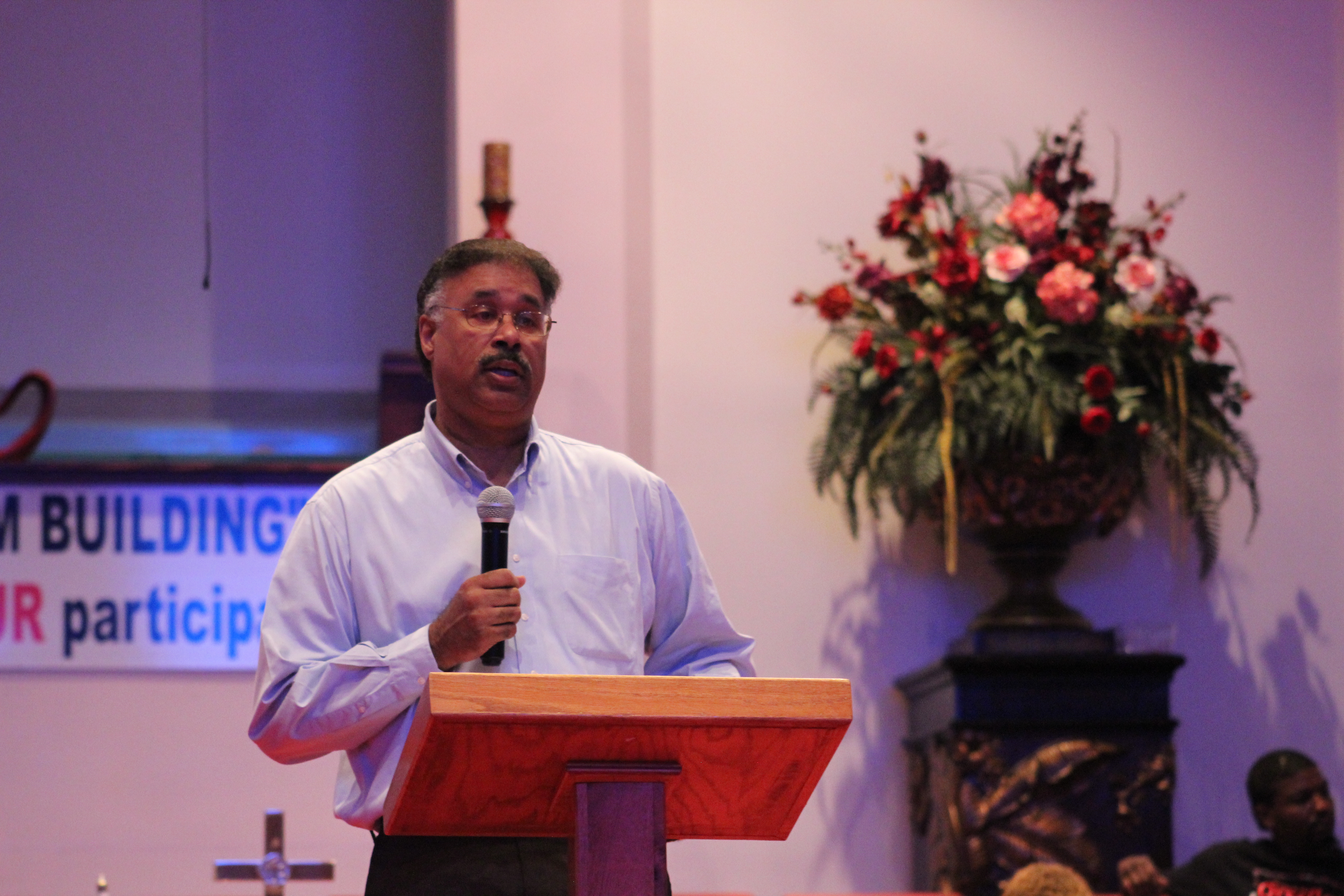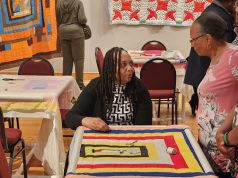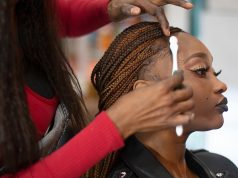By Ariel Worthy
The Birmingham Times
All healthy communities have three things in common: spend time with each other, cross-pollinate ideas, and invest willingly in their future, Gerrel Jones told attendees at the “Putting Neighbor Back in Neighborhood Mixer” on Saturday at True Love Church of Ensley.
Jones, who planned the event with his company Pneuma Gallery, said the goal of the event was to show communities that they could do more to develop themselves than wait for government assistance.
Jones is founder of Pneuma Gallery Inc, an organization that focuses on reducing violence, recidivism and family dysfunction while building community.
“You have people on one end who are poor and don’t know what to do with money at all,” he said. “Then you have people who do have resources but might not know how to make the resources work for them and their neighborhood.”
Experts like Clyde Bell, with Hometown Lenders, was on hand to offer advice on building credit as well as Jarvis Morehead of Renasant Bank who talked about obtaining loans.

“You’re pouring money into apartments that could go into a home,” Jones said. “Jarvis talked about banking and explained that getting loans from banks and building credit scores can be used to create businesses.”
Morehead urged families to become better financial managers.
“Increase savings, manage risks and learn to assess appropriate financial problems so your savings will grow over time,” Morehead advised. “As consumers we have to accept increased personal responsibility and transform ill-advised financial behavior into proven practices that can offset threats to our financial well-being.”
Communities value peer-group membership and often let pride stand in the way when it comes to financial lifestyle changes, Morehead said.
“As we get older our lifestyles evolve and our peer groups can have a substantial impact on our (finances),” he said. “The impact can be good or bad. In order to save or pay back our debt it may require changes in our lifestyles. We may have to move to a smaller house or a less affluent neighborhood, or shopping for clothing on sale. The impact of our self-identity and self-esteem are a variant to making these changes.”
Having expensive clothes and cars have been more important than having an emergency fund, he said.
“We feel a need to compare our toys with our friends or peers with non-appreciating access like jewelry, clothes, purses, cars, hair, nails, eating out,” he said. “That’s a problem in many communities.”
Morehead offered ways to help financial stability.
“Pay yourself first,” he said. “Automate your savings and set the money aside in an account that is not easily accessible.”
“Don’t pile up credit card debt, protect your dependence and have a will or life insurance, have a retirement plan,” he said.
Bell offered information on homeownership.
“When it comes to homeownership, you take better care of something when you know it’s yours,” he said. “That mindset goes into renting. Homeownership isn’t the hardest thing and it helps in many ways. You get money back on your taxes, you have equity in your home that you can use in a number of ways: college tuition, borrowing money for emergencies.”
Bell, with Hometown Lenders, advised people to build credit and save for homes.
“I’ve seen people build up their credit over six months,” he said. “They didn’t have to do anything crazy either; it’s how bad they wanted it.”
Jones said he hopes to get more experts, like the Birmingham Urban League, to attend the next event and talk about topics like entrepreneurship.
“It’s not hard to do,” he said. “You can keep track of your tax information and business information on an app. It’s very easy to do these things, but we’ve got to get the exposure and then beginning having the conversations.”




